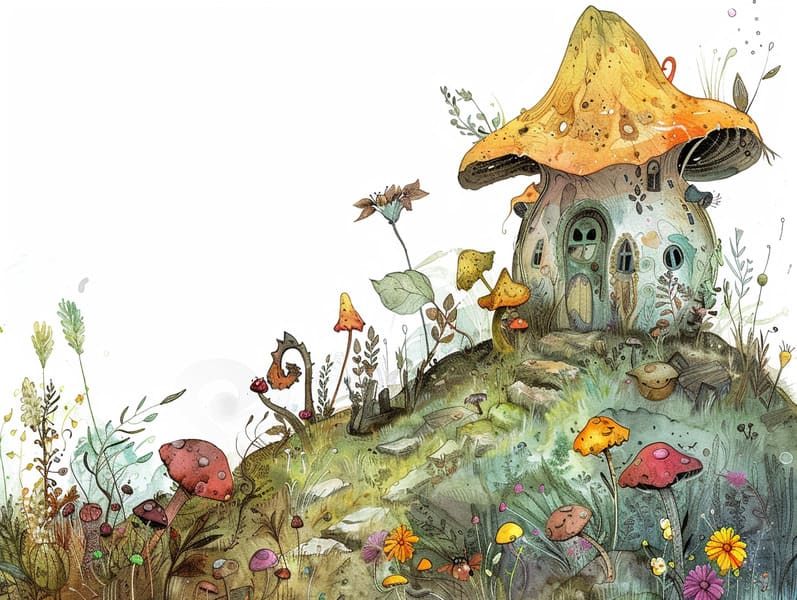
The end of the day is a treasured time for moms and dads with their little ones. It’s a ritual to ease into rest, snuggle, and partake in the joy of nighttime tales.
For decades, sleep stories for kids have been a esteemed practice, offering more than just a way to slumber. They provide an occasion for affection, discovery, and encouraging fantasy.
The Key Benefits of Bedtime Stories
Stories for kids at bedtime go beyond a way to conclude the day. They play a key role in a child’s progress and in reinforcing the parent-kid rapport. Here’s why they matter:
1. Connection Time: Telling bedtime tales builds a special moment of connection between moms and dads with their little ones. It’s a moment of intimacy that helps children feel secure and protected.
2. Vocabulary Building: Hearing tales helps children develop their linguistic abilities. They understand new language, understand grammar, and develop their comprehension and comprehension abilities.
3. Fantasy and Imagination: Children's tales transport them to magical worlds, encouraging inventiveness. They visualize characters, settings, and adventures, which sparks their imagination.
4. Emotional Skills: Bedtime narratives often involve characters facing issues and feelings. These accounts help kids understand and manage their own moods, developing emotional skills.
5. Cognitive Development: Paying attention to a narrative helps children develop mental engagement, memory, and reasoning skills. They improve to follow lines of thought, remember components, and predict outcomes.
Including Bedtime Stories Nightly
Building a nightly ritual that has sharing tales is doable and beneficial. Here’s how to ensure it becomes a beloved part of your night-time custom:
1. Select a Comfortable Location: Choose a snug place where you and your child can get cozy without disturbances. A comfortable bed or a peaceful reading nook works great.
2. Set a Consistent Time: Determine a routine time each night for tales. Consistency helps children be ready and makes the habit more sustainable.
3. Select Stories by Age: Identify tales that fit your child’s understanding. Little kids might appreciate visual books with easy plots, while more mature kids may be interested in chapter books with more complicated tales.
4. Interact with the Story: Try to the tale be immersive by adding different voices and accents, adding story sounds, and getting your child to participate. Ask things about the story to involve them.
5. Make a Calm Setting: Lower the lights, use calm voices, and create a quiet environment to help your child settle down.
How to Discover Bedtime Stories
There are many sources where you can find wonderful bedtime stories for children. Here are some ways to look at:
1. Kids’ Literature: Explore your local library or bookstore to find a great selection of bedtime stories for kids. Looking through the aisles together can be a delightful activity that also permits children to choose stories that they are drawn to.
2. Internet Resources: There are many websites that offer free bedtime stories. Sites like kids' story platforms provide a variety of short stories for kids that you can print out. These websites are great for finding new and varied stories without paying.
3. Audio Stories and Apps: For nights when you’re too exhausted to read, think about audiobooks or storytelling apps. These can provide a relaxing voice to read your child a story, ensuring they still get their bedtime story fix. Apps often offer engaging components that can capture their attention further.
4. Individualized Stories: Compose your own stories matching your child’s interests. Personalized stories can be especially engaging and meaningful. You can get your child in the narration process, making them a part of the adventure.
Advantages of Short Stories
Short bedtime stories are particularly great for bedtime. They provide all the good points of longer stories but are more here succinct, making them perfect for settling down before sleep. Here’s why short stories are a good choice:
1. Easy to Follow: Concise narratives are uncomplicated and effortless for children to follow, even after a long day. They can easily grasp the theme and enjoy the story without becoming distracted.
2. Immediate Attention: Short tales readily engage children, capturing their involvement and interest. This makes them wonderful for keeping bedtime rituals effective yet enjoyable.
3. Wide Range: Brief tales create for variety in your bedtime tales. You can pick a different story each night, keeping the custom fresh and exciting for your child.
4. Manages Time Well: For busy parents, to-the-point tales are a efficient way to confirm children still get their nightly dose of storytelling. They fit well into a crowded schedule while still offering the full advantages of a bedtime story.
Why "Read Me a Story" is Magic
The simple phrase, “Tell me a story,” can offer a world of magic for children. Answering to this request not only meets a child’s desire for attention and engagement but also develops lasting recollections. Here’s why it’s charming:
1. Tie: Narrating to your child strengthens a deep emotional connection. It’s a time for proximity, sharing, and bonding.
2. Custom: Developing a bedtime story practice creates a prized tradition that children enjoy every night. It’s a habit that can be handed down through generations.
3. Mutual Learning: As you tell stories, you’ll watch your child’s evolution and maturation. Their reactions, reactions, and understanding of the stories develop, offering insights into their developing minds.
4. Safe Environment: Bedtime stories provide a safe space for children to discover emotions, face fears, and find comfort in the recognizable presence of a parent.
Summary
Stories for kids at bedtime are a essential tool for growing a child’s development and creating unforgettable moments of togetherness.